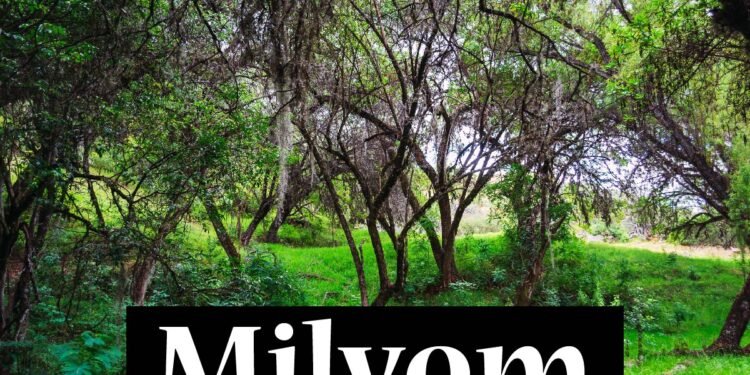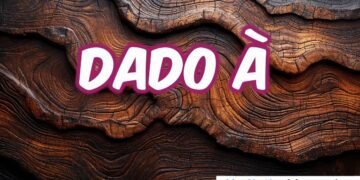Table of Contents
ToggleChatGPT said:
Introduction
In the fast-changing digital landscape, few words have generated as much curiosity as Milyom. It appears across forums, blogs, and social platforms, yet no one seems to know what it truly means. Some see it as an app, others as a concept, and many consider it an accidental creation of artificial intelligence. However, that very ambiguity has turned Milyom into a cultural mystery — a term that sparks intrigue, speculation, and creativity in equal measure. This article dives deep into every theory, tracing its potential origins, cultural interpretations, and its unexpected rise as a digital phenomenon. By the end, you’ll understand why Milyom might be one of the most fascinating modern mysteries on the internet today.
What Is Milyom?
The Many Faces of Milyom
Milyom is not confined to a single meaning. Depending on where you look, it could be described as a digital platform, a travel destination, a creative philosophy, or even a symbolic term for discovery. This fluidity fuels its viral appeal. Each person who encounters Milyom interprets it differently, making it a linguistic mirror reflecting individual imagination. On forums and social media, you’ll find users debating whether it’s a new startup, a hidden concept, or a forgotten cultural artifact. In many ways, this collective confusion enhances its power — because in today’s attention economy, mystery attracts more interest than definition.
Defining the Undefined
Unlike conventional terms found in dictionaries, Milyom defies categorization. It belongs to a new class of words born in the digital age — words like “metaverse” or “liminal,” which began as niche expressions but grew into cultural symbols. What sets Milyom apart is how it refuses to settle into one box. Its ambiguity invites participation, urging users to contribute meaning rather than consume it. In essence, Milyom thrives because it is undefined, and in that openness lies its creative potential.
Origins and Etymology of Milyom
Possible Linguistic Roots
When analyzed linguistically, Milyom has an intriguing structure. The syllables “Mi‑ly‑om” roll off the tongue smoothly, giving it a harmonious rhythm. Linguists suggest it could have Turkish or Latin roots, though no historical record supports that claim. Others believe it could be the product of an algorithm — a word generated by AI or bots designed to mimic natural language. Its symmetrical design and vowel pattern make it feel familiar, even though it has no recorded linguistic ancestry. This is what makes Milyom so captivating: it sounds meaningful even before it is defined.
Early Appearances Online
The earliest traces of Milyom appeared in 2023–2024, tucked away in obscure blogs and AI-generated articles. Some SEO analysts argue that it began as filler text in content farms and accidentally gained traction through repetition. Others claim it started as a username on social media, later adopted by multiple users, spreading through search algorithms like a digital echo. Regardless of origin, Milyom has since evolved into a keyword that symbolizes the mysterious side of the internet — where randomness becomes identity and curiosity transforms into meaning.
Cultural Spread
By 2024, Milyom began appearing in TikTok captions, Reddit threads, and even digital art tags. Its flexibility allowed people to use it however they pleased — from naming playlists and pets to titling creative projects. Social algorithms amplified its reach, as curiosity-driven searches rewarded the mystery. Unlike traditional trends that fade, it continues to grow precisely because it resists definition. It now exists in a hybrid space between language, culture, and digital folklore.
Four Competing Theories About Milyom
1. Milyom as a Digital Platform
Some claim Milyom refers to a productivity or communication platform designed to streamline digital collaboration. Articles describe features like analytics dashboards, security layers, and user growth tracking. While no verified product has surfaced, this theory aligns with how many startups use unusual names to attract attention. Even as speculation, it shows how people associate it with innovation and technology.
2. Milyom as a Hidden Destination
Another popular interpretation paints Milyom as a travel destination — a hidden gem untouched by mass tourism. In this version, Milyom represents authenticity and discovery, a metaphorical space for wanderers seeking deeper experiences. Blogs portraying it this way often describe stunning landscapes and rich traditions, merging imagination with reality. Whether literal or fictional, this idea captures the human desire for unexplored beauty.
3. Milyom as a Cultural Concept or Philosophy
Some writers see Milyom as a modern philosophy rooted in balance and awareness. Like Japan’s Ikigai or Africa’s Ubuntu, it could symbolize harmony between individuality and community. Its conceptual vagueness makes it adaptable to personal growth, creativity, and mindfulness narratives. In this sense, Milyom transforms into a living philosophy — a call to live with curiosity and connection.
4. Milyom as a Linguistic Accident or AI Artifact
A more technical theory suggests that Milyom emerged from algorithmic randomness — a byproduct of machine learning models or keyword generation systems. In this view, it’s not a creation of intent but of data. Yet, paradoxically, its artificial birth only adds to its allure. It demonstrates how even meaningless data can evolve into meaning when human curiosity intervenes.
Milyom in the Digital Ecosystem
How Search Engines Amplify It
The rise of Milyom highlights a fascinating SEO phenomenon known as the “keyword vacuum.” When a term has no competition but high intrigue, search engines elevate any content that references it. Early adopters capitalize on this by publishing speculative pages, further increasing its visibility. As a result, it became a self-sustaining digital loop — a mystery amplified by algorithms hungry for engagement.
Social Media Resonance
Platforms like Pinterest, TikTok, and X (formerly Twitter) are fertile grounds for Milyom’s growth. Artists use it as a hashtag for digital aesthetics, while content creators adapt it as a pseudonym or brand. Every reinterpretation gives it new life, reinforcing its viral presence. This organic evolution mirrors how internet culture breathes life into words through repetition, remixing, and reinvention.
The Psychology Behind the Milyom Phenomenon
Why People Are Drawn to the Unknown
Humans are wired for curiosity. When faced with uncertainty, the brain seeks patterns to create meaning. it perfectly triggers this instinct. Its lack of definition invites endless interpretation, fueling clicks, conversations, and even artistic expression. Psychologists call this the “curiosity gap” — the irresistible urge to resolve ambiguity. That gap is exactly what keeps Milyom alive in our collective consciousness.
The Emotional Power of Ambiguous Words
Words like Milyom evoke emotion because they allow flexibility. They can mean whatever the listener wants them to. This open-endedness fosters emotional ownership — when people feel they’ve contributed to shaping meaning. It’s the same power that made terms like “dreamcore” or “backrooms” cultural phenomena. Ambiguous language isn’t empty; it’s a canvas for creativity, and it embodies that beautifully.
Cultural and Creative Interpretations of Milyom
In Art and Music
Creative communities have already embraced it as inspiration. Independent musicians use it as a song title to express identity and emotion. Digital artists label collections under “Milyom” to represent surreal or liminal aesthetics. For them, Milyom symbolizes the intersection between imagination and technology — the unknown made tangible through art.
In Branding and Marketing
Marketers have noticed the appeal of Milyom too. Its short, balanced structure and pleasant sound make it ideal for branding. It’s memorable, globally pronounceable, and free from strong cultural ties. However, experts caution that ambiguity must be paired with purpose. Without a clear message, even beautiful words risk becoming forgettable. For brands, it represents both opportunity and challenge — the balance between mystery and meaning.
Sustainability and Ethical Dimensions
Ethical Naming and Ownership
As Milyom grows in popularity, ethical concerns arise. Unclear origins invite misinformation and misuse. Responsible creators should acknowledge its speculative nature and avoid misleading associations. Using it in content or branding requires transparency to maintain trust and integrity in the digital space.
Protecting Cultural Authenticity
If Milyom ever develops real cultural significance — as a project, place, or philosophy — protecting its authenticity will be essential. Digital history shows that open terms often get distorted without proper attribution. Safeguarding the context of it ensures it remains a positive symbol of creativity rather than a commercial gimmick.
Future of Milyom
Potential Futures
The future of it could unfold in several directions. It might evolve into a real brand, much like how “Kodak” or “Spotify” became household names from invented words. Alternatively, it could remain a digital curiosity — a relic of 2020s internet culture like “Y2K” aesthetics. Or, perhaps, it will become a shared philosophy adopted by global communities as a metaphor for curiosity, exploration, and connection.
The Evolution of Language in the Age of AI
Language today evolves faster than dictionaries can document. Artificial intelligence continually generates new expressions, many of which gain meaning through social use. It exemplifies this new linguistic frontier. It reminds us that in the age of algorithms, words are no longer static; they are living entities shaped by both human and machine creativity.
Benefits of Understanding Milyom
| Level | Benefit |
|---|---|
| Cultural | Encourages exploration of meaning and creativity |
| Technological | Reflects the evolution of AI-generated language |
| Creative | Offers a unique, brandable, and aesthetic identity |
| Academic | Serves as a case study in linguistics and digital culture |
Conclusion
Milyom is more than a passing curiosity — it’s a reflection of how humans and machines now co-create culture. Its ambiguity makes it endlessly fascinating, a mirror of our collective desire to seek meaning in chaos. Whether it becomes a brand, a philosophy, or remains a riddle, it has already achieved something remarkable: it has captured global attention without saying a single defined thing. Maybe, in the end, it doesn’t need one meaning — it is the space where meaning begins.
(FAQs)
1. What does Milyom mean?
Milyom currently has no official definition. It represents a digital mystery that invites interpretation.
2. Where did the word Milyom come from?
It first appeared in online content around 2023–2024 and may have been AI-generated.
3. Is Milyom a real place or concept?
That depends on context. Some see it as a location, others as a philosophy or brand idea.
4. Why is Milyom trending online?
Its mystery, adaptability, and low competition in searches make it ideal for viral content.
5. Could Milyom become a brand name?
Yes. Its sound, uniqueness, and visual appeal make Milyom a perfect candidate for creative branding.
You May Like:
SwindleTrilogy Com: The Dark Side & Bright Side Exposed


















Discussion about this post